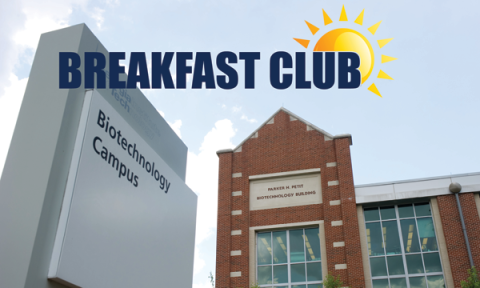event
Breakfast Club Seminar Series
Primary tabs
"Therapeutic Angiogenesis and Bone Regeneration with Natural and Synthetic Small Molecules"
Ed Botchwey, PhD
Associate Professor
Wallace H. Coulter Department of Biomedical Engineering
Endothelial cells play significant roles in conditioning the environment in local tissues after injury by the production and secretion of angiocrine factors. At least two distinct subsets of leukocytes, CD45+ CD11b+ Ly6C+Gr1+CX3CR1lo inflammatory monocytes (IM) and CD45+CD11b+Ly6CGr1-CX3CR1hi anti-inflammatory monocytes (AM), respond differentially to these angiocrine factors and promote pathogen/debris clearance and angiogenesis/wound healing, respectively. Our laboratory is currently investigating how local sphingosine 1-phosphate receptor 3 (S1P3) agonism recruits AM to remodeling vessels. We employ micron and nanoscale biomaterials to deliver FTY720, a S1P1/3 agonist, to inflamed and ischemic tissues, to reduce in pro-inflammatory cytokine secretion and an increase in regenerative cytokine secretion. The altered balance of cytokine secretion results in a reduction in inflammatory monocyte recruitment and an increase in anti-inflammatory CX3CR1hi monocyte recruitment to a pro-regenerative perivascular niche. Increased S1P3 expression and activation on AM resulted in significantly enhanced SDF-1α chemotaxis over IM. AM recruitment also enhanced arteriolar diameter expansion and increased length density of the local vasculature: classic signs of vascular remodeling. This work establishes a role for S1P receptor signaling in the local conditioning of tissues by angiocrine factors that preferentially recruit regenerative monocytes that can enhance healing outcomes, bone tissue regeneration, and biomaterial implant functionality.
Status
- Workflow status: Published
- Created by: Colly Mitchell
- Created: 04/09/2013
- Modified By: Fletcher Moore
- Modified: 10/07/2016
Categories

